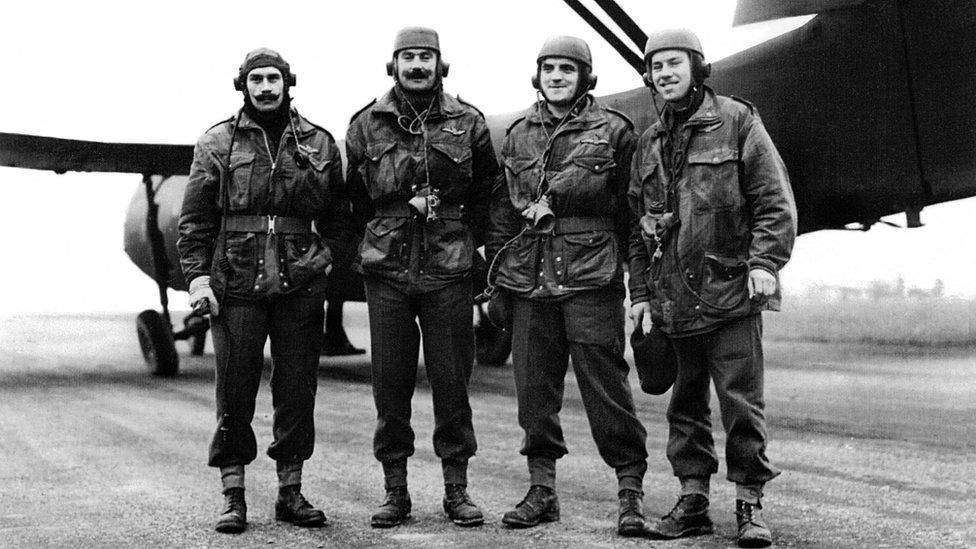Kayakers to re-enact D-Day reconnaissance mission
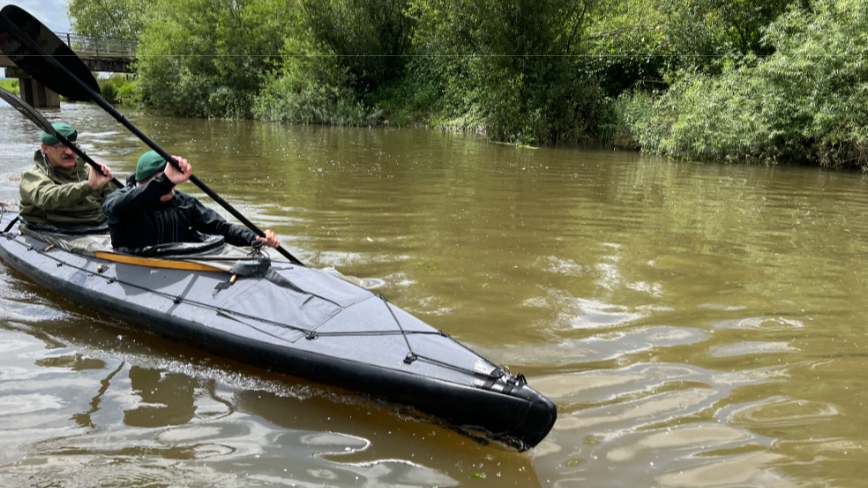
The kayakers are paddling across the English Channel to take part in 80th anniversary D-Day commemorations
- Published
Four kayakers are taking part in a re-enactment of a D-Day military reconnaissance mission, which proved critical to the outcome of the Allied invasion of Normandy in the Second World War.
The original expedition was carried out by the Combined Operations Pilotage Parties (COPP), which were trained to infiltrate and survey enemy-held beaches as potential landing sites.
The kayakers are joining a team of 18 former and serving Royal Marines who are paddling across the English Channel to celebrate the 80th anniversary of D-Day on 6 June.
"The COPP team were crucial for the D-Day landings," said Maj Mike Devereux, of the Commando Helicopter Force.
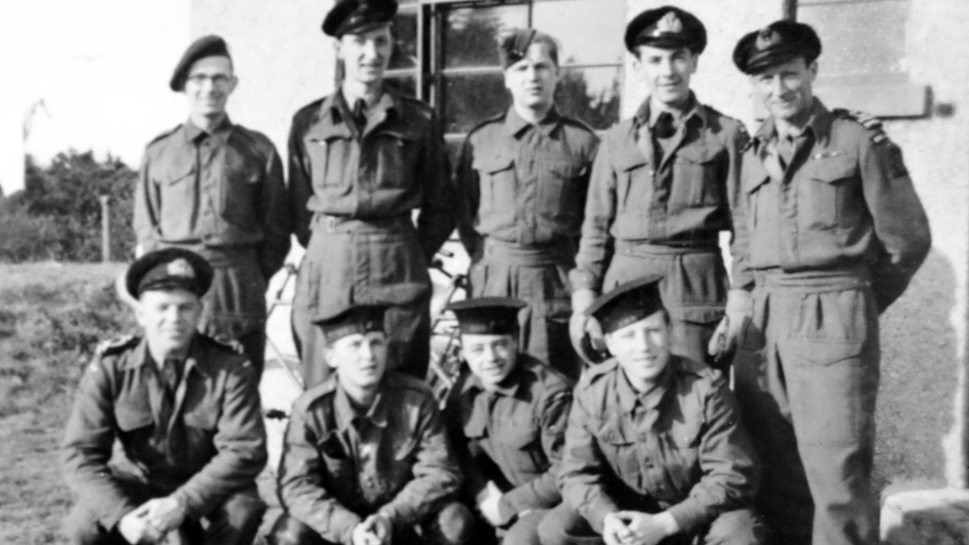
The COPP missions were vital to the work of military planners prior to the D-Day landings
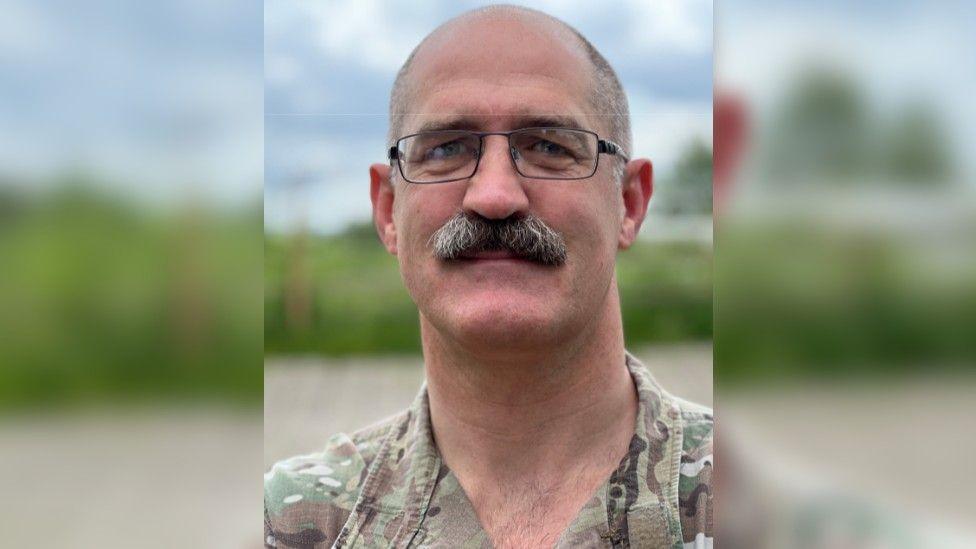
Major Mike Devereux is one of four kayakers from the West taking part in the Channel crossing
Royal Marine, L/Cpl Sam Edwards, from Taunton, said: "I'm very proud to have been be chosen to do something like this.
"I think it's a great way of remembering the lads who went over.
"It will be great to see it from a different perspective, from the sea - because normally we see the beaches from the land, rather than the Allied perspective."
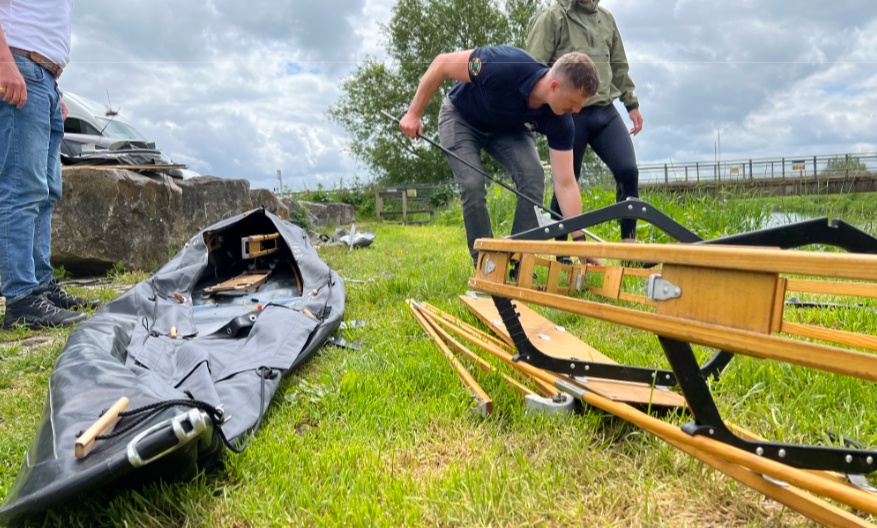
The 'Klepper' kayak can easily be taken apart and rebuilt in a different location
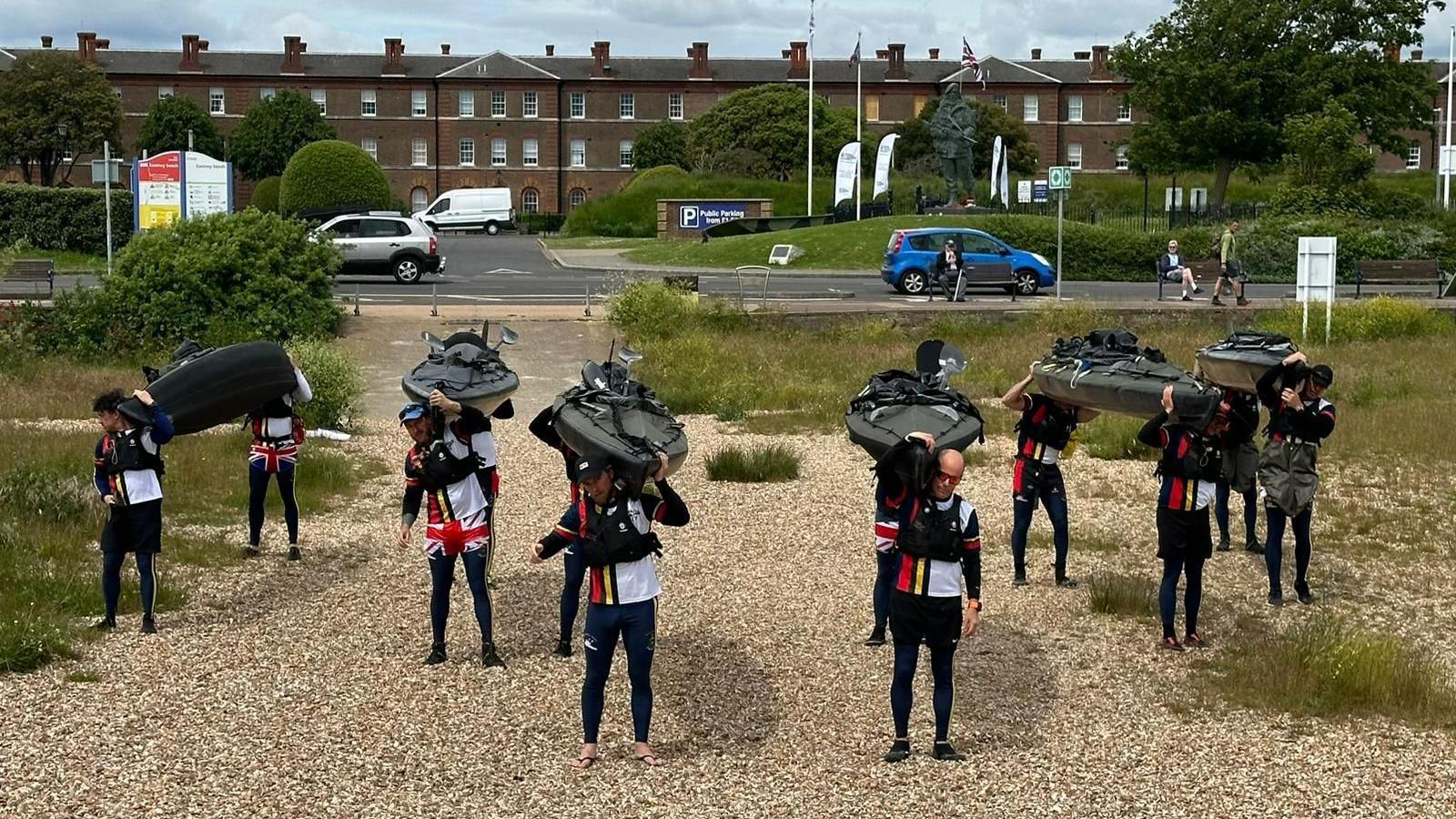
Four marines will be taking part
The COPPists, as they became known, risked their lives to gather information about proposed landing beaches and recce in-shore waters, usually under the noses of enemy coastal defences.
Their missions were vital to the work of military planners.
"There would have been a final check; do we launch, do we go, do we not go, based on their reconnaissance," said Maj Devereux, from Yeovil.
The man who were involved in the missions ahead of D-Day used a type of robust kayak, called a Klepper, versions of which are still in use today.
"It's a practical piece of kit," added Maj Devereux.
"It's heavy and virtually unbreakable. You can take them to pieces, carry them to another location, put them back together, relaunch them and get back on the sea to do your job."
In the end, the COPP team completed their missions using midget submarines instead, as conditions in the English Channel in 1944 were too rough.
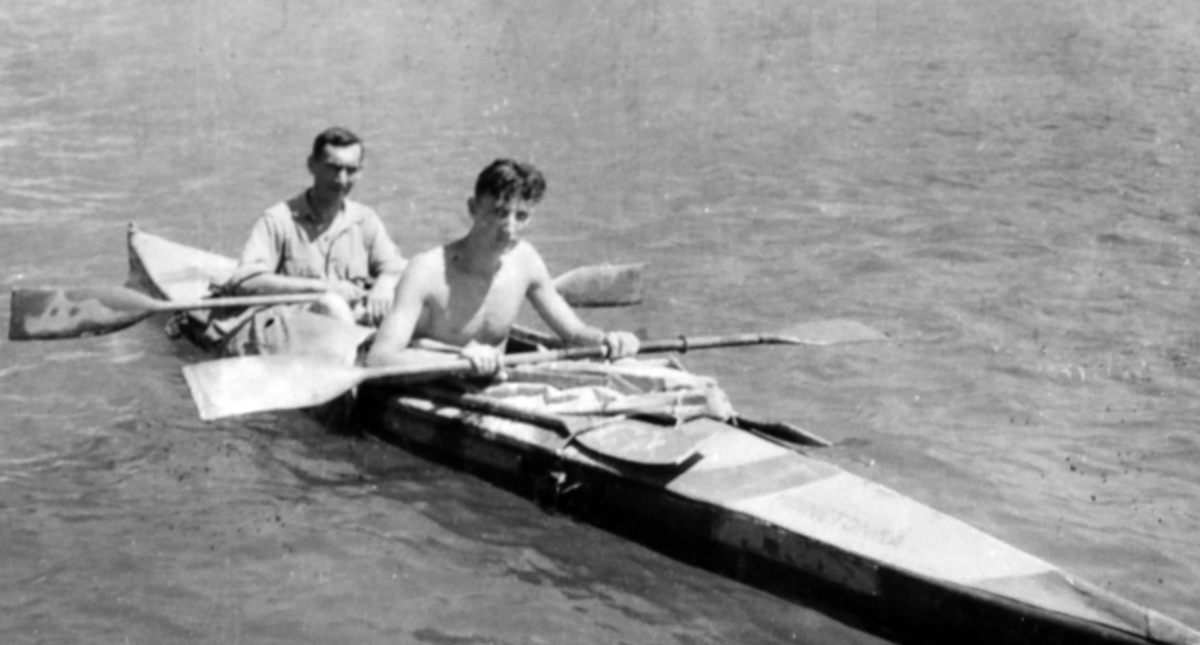
The COPP kayakers risked their lives gathering information about potential landing sites in Normandy for the D-Day landings
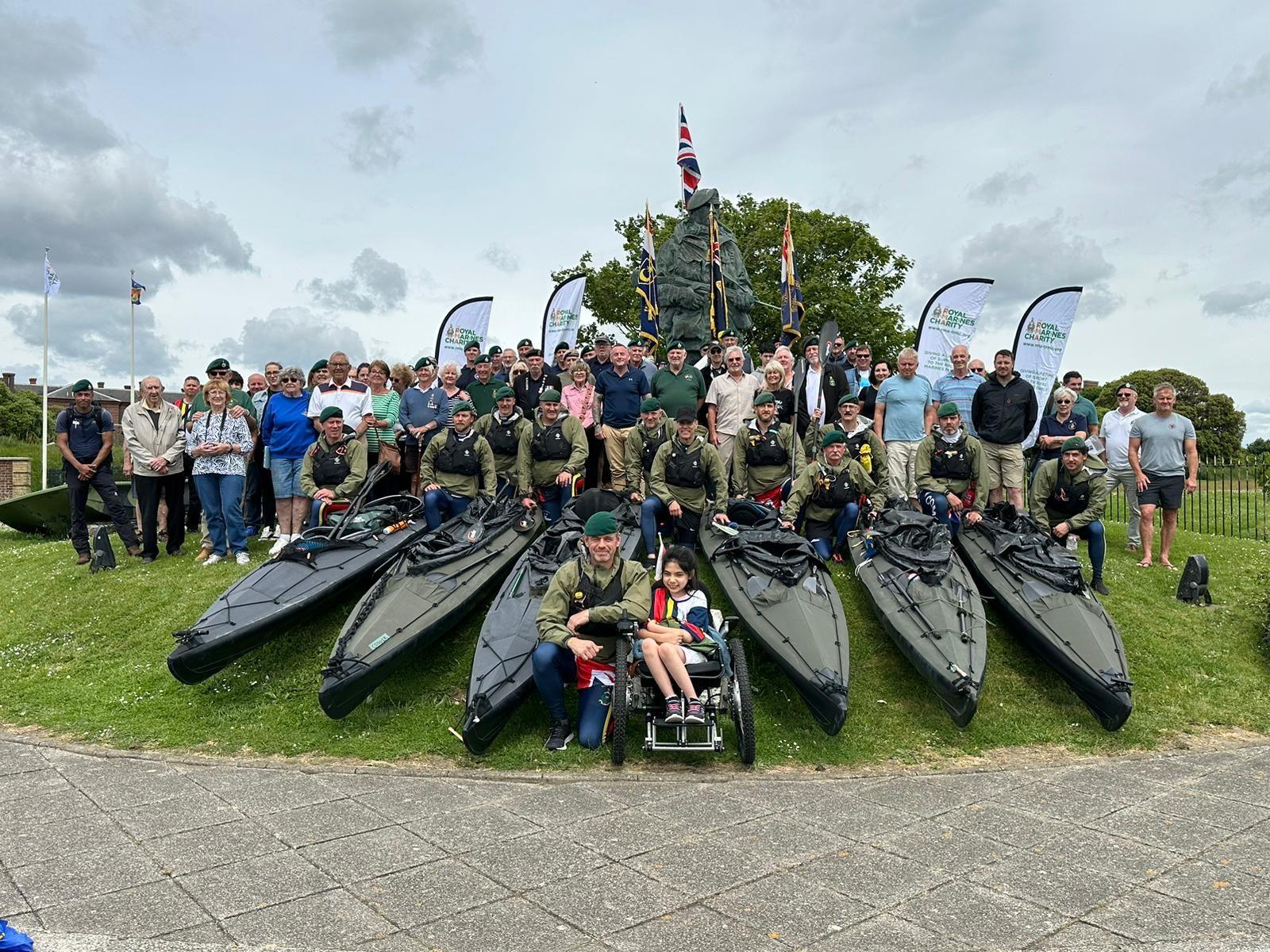
The group will land in Normandy after 24 hours of paddling
The kayakers leave Portsmouth on 3 June and will arrive in Normandy about 24 hours later, in time to join in with the D-Day commemorations.
"It's a bit of a tradition in the Royal Marines to paddle," said Maj Devereux.
"An opportunity for former, and serving, Royal Marines to meet the lads, who have moved on from the core, but still want a connection, and it's a good physical challenge."
Malcolm Swarbrick, from Tewkesbury, and David Bruce, from Taunton, both serving or veteran Royal Marines, will also be joining the challenge.
Follow BBC Somerset on Facebook, external and, X, external. Send your story ideas to us on email, external or via WhatsApp on 0800 313 4630.
Related topics
- Published21 April 2024
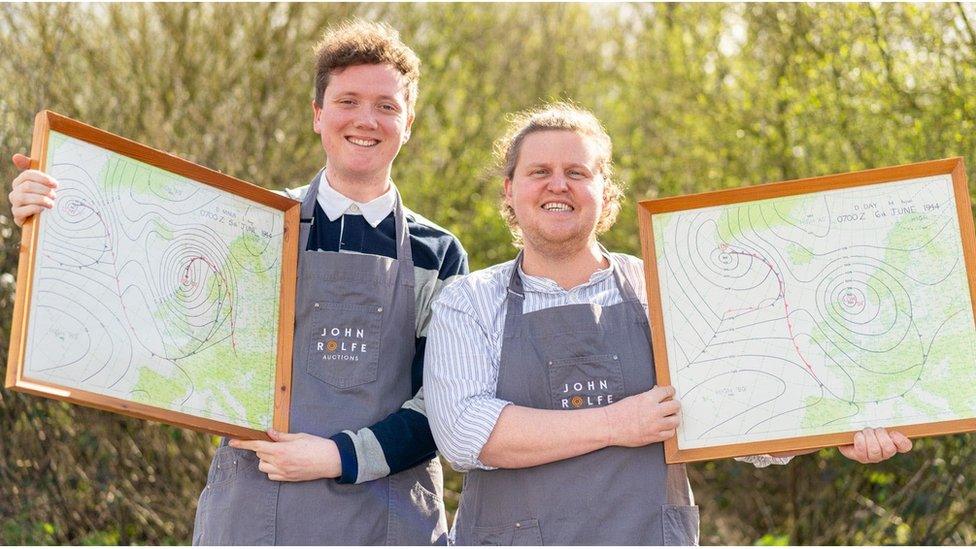
- Published14 April 2024
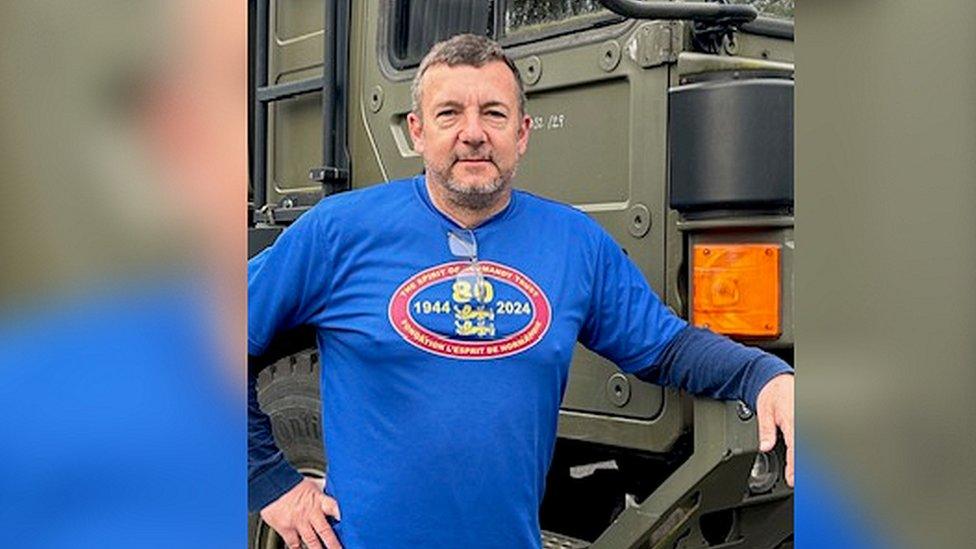
- Published24 February 2024
